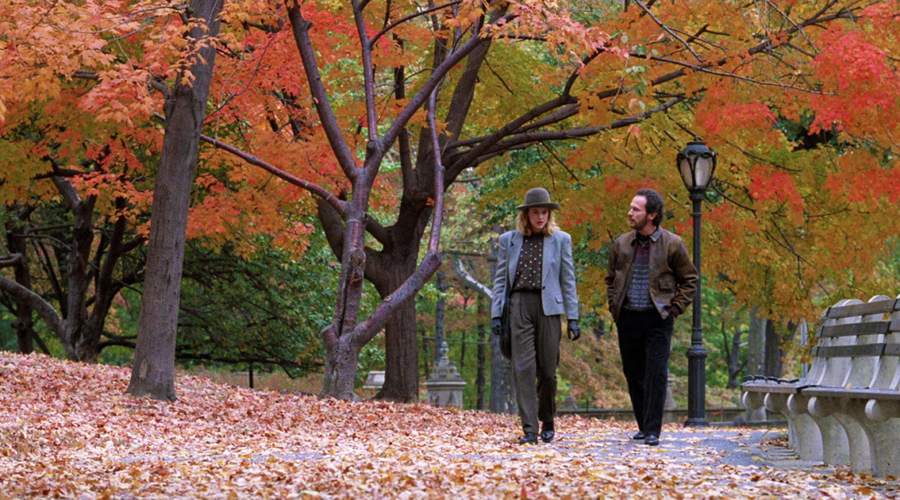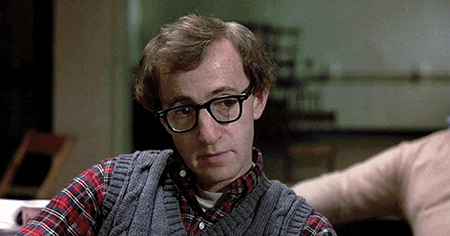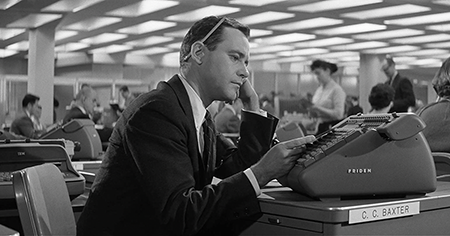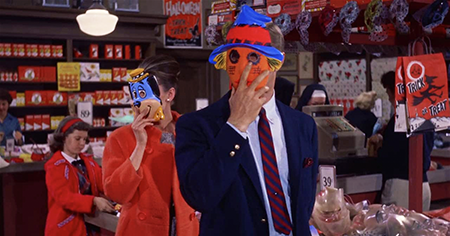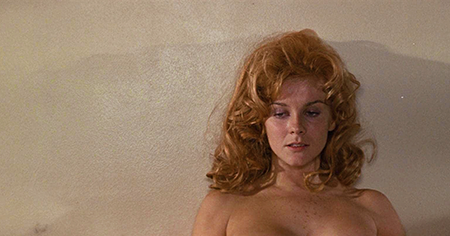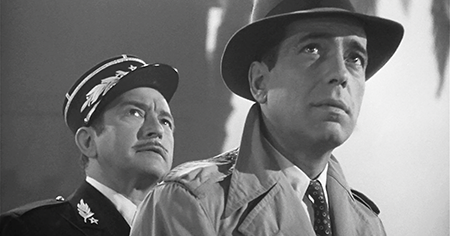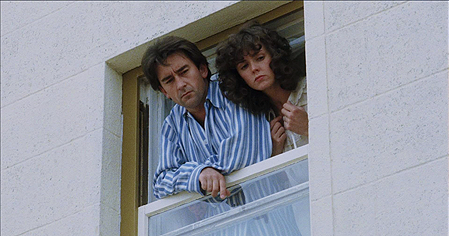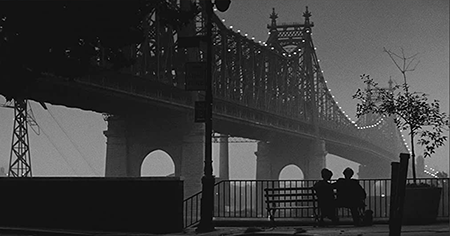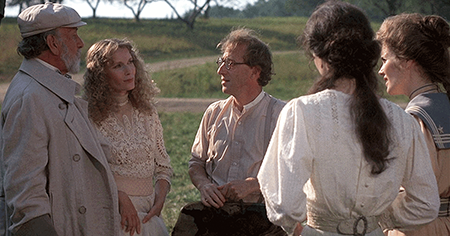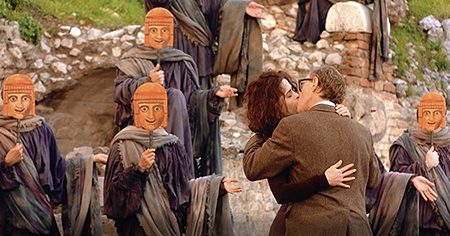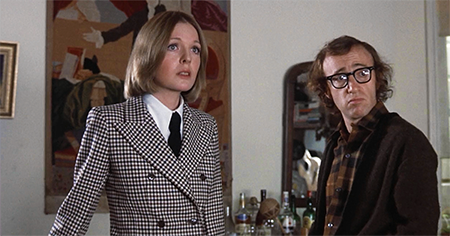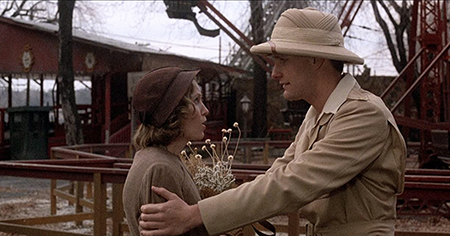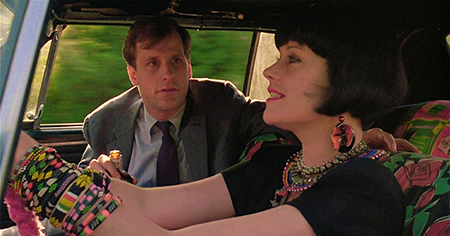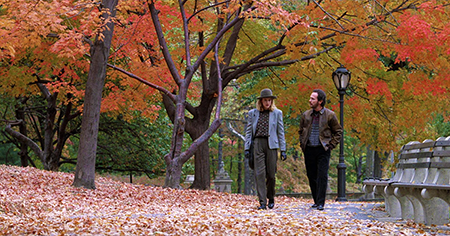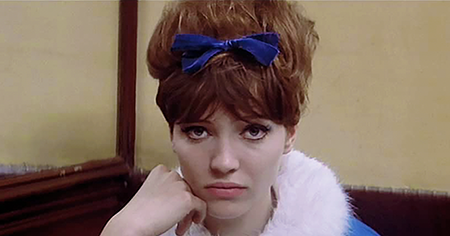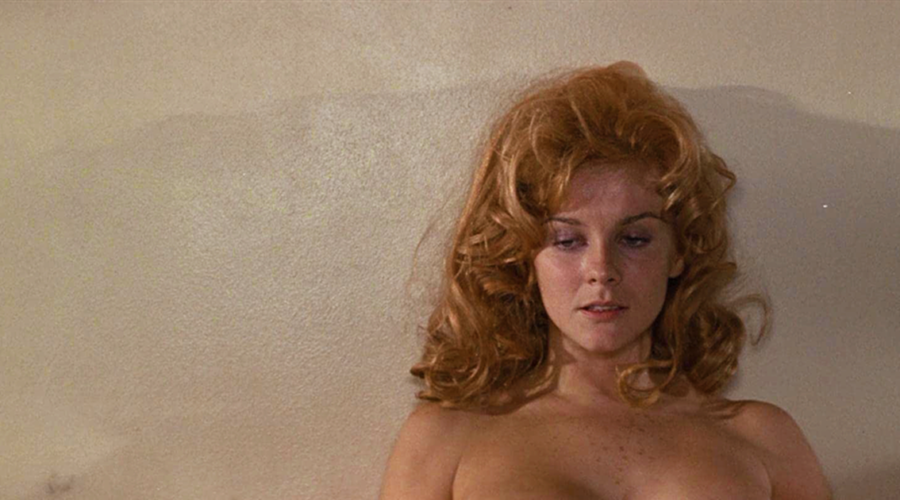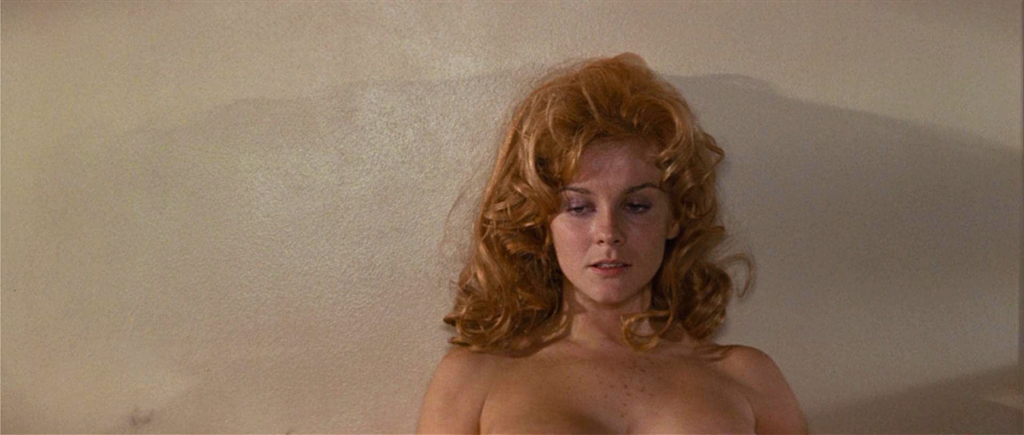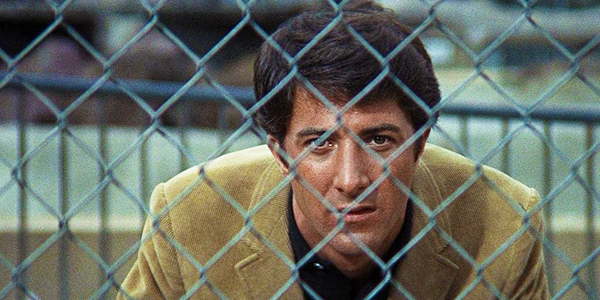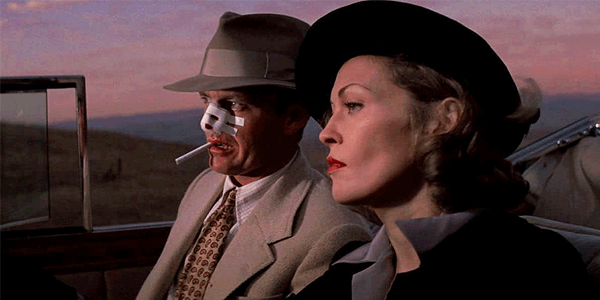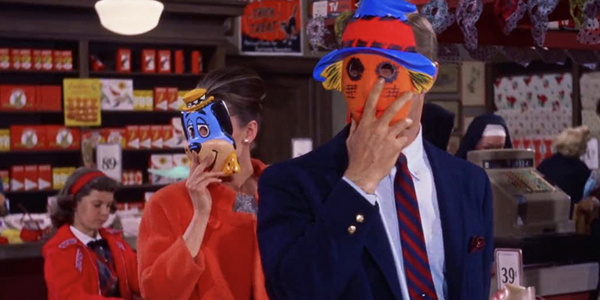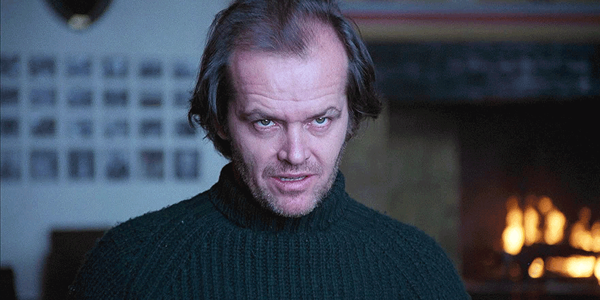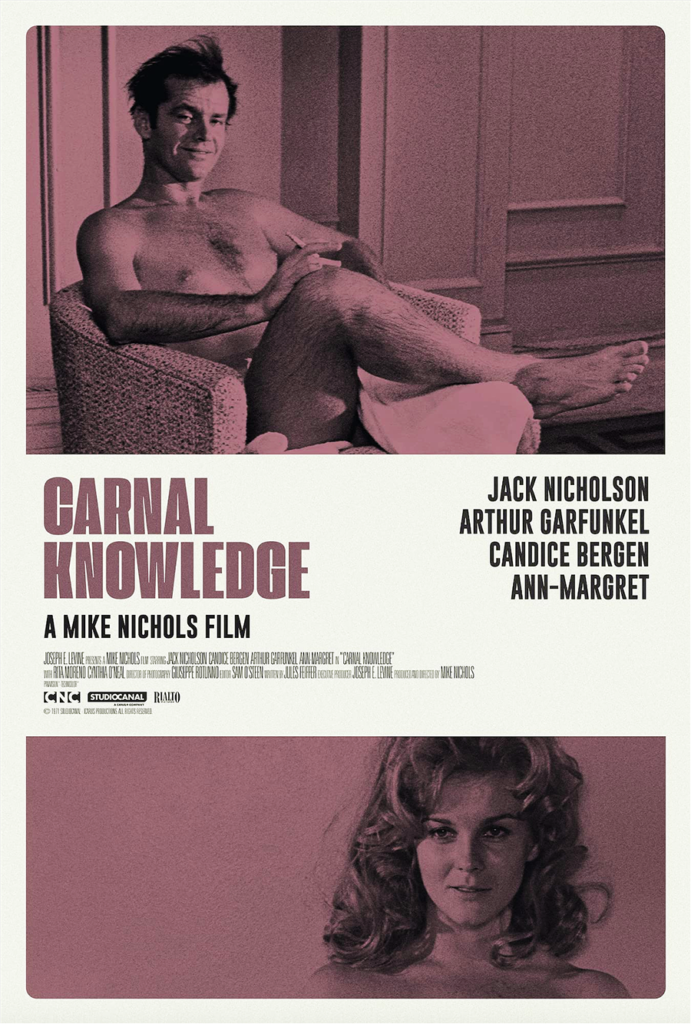A Little Romance
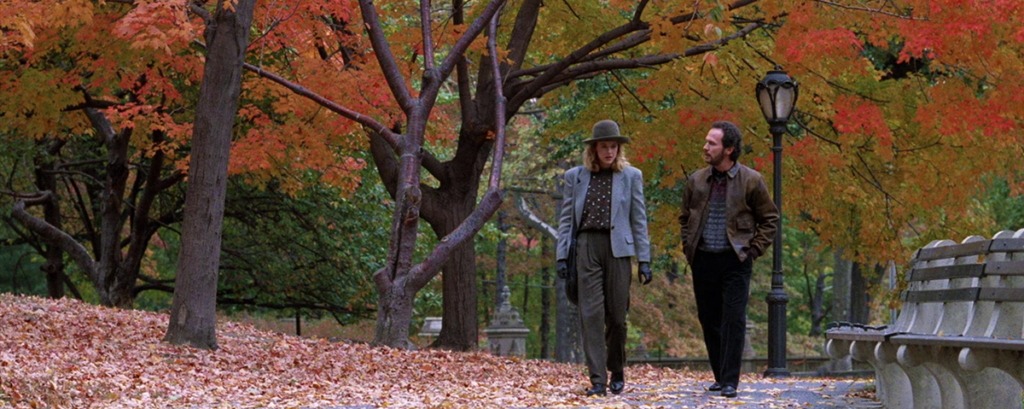
A Little Romance
A LITTLE ROMANCE
A diverse assortment of Valentine’s treats that offers something for everyone. from traditional romantic comedies to more adventurous fare
by the Cineluxe staff
updated February 5, 2025
We hesitated last year to include all of the relevant Woody Allen films, but to not post everything from a master of the genre just seemed silly, even if it does heavily tilt the scales in his favor. We’ve also decided to include Local Hero, which is undeniably a romantic comedy even if it’s as much about falling in love with a place as a person. The dearth of worthwhile new romantic comedies, which we lamented in our previous roundup, continues. It would be sad if it turns out we no longer have room in our lives for romance and have decided to opt instead for world filled with selfish acquisition and relentless aggression. If nothing else, the offerings here can provide a badly needed refuge from sordid reality.
ABOUT TIME
“I have two types of friends: Those who think Die Hard is the best Christmas movie of all time, and those who think Love Actually is the best Christmas movie of all time. I cast my lot with the latter camp, but I don’t think Love Actually is actually Richard Curtis’ best film. Sacrilege, I know, but that distinction actually belongs to About Time, perhaps one of the most misunderstood films I’ve ever seen. Misunderstood, because the handful of critics who saw it felt the need to pick nits with the rules governing this time-traveling rom-com’s temporal shenanigans, as if it were some sort of science-fiction flick. It’s not. Far from it. About Time is actually a modern-day fairy tale, whose violations of its own rules are actually kinda part of the point. I’m almost ashamed to admit it, but I silently judge people who’ve seen this film and didn’t love every frame of it.”
“Forget that this is supposed to be a romantic comedy. Forget about its Oscars. Forget about the well-heeled mob of Hollywood conformists bleating for Woody Allen’s blood. Approach Annie Hall as an adventurous and innovative and unusually honest piece of filmmaking and you’ll get the chance to experience—or re-experience—one of the best American films of the final quarter of the last century, the movie that helped start the wave that brought New York City back from the dead, for better or worse.”
read more
“I can’t say I love this film, but I do admire it, and I found the experience of filtering the past and present of the culture through it if not enjoyable exactly, then intriguing and unsettling and ultimately gratifying. You should watch The Apartment, if you haven’t seen it or haven’t seen it in a while. It’s got some real meat on its bones; and it’s an invaluable snapshot of a both tangible and illusory but undeniably decisive, invigorating—and I would argue, squandered—moment in time.” read more
“It’s a little too obvious to begin a review of Tiffany’s with Audrey Hepburn, but how can you not? What she does with her character is still breathtaking, somehow managing to stay true to the depth and nuance of Truman Capote’s original conception of Holly while shepherding her through all the standard-issue Hollywood attempts to blandify her, emerging with a conception that’s somehow able to synthesize and transcend both.” read more
“Since Knowledge isn’t considered a ‘big’ movie, who knows if it will ever receive the restoration or 4K bump-up it more than deserves. But there are classics of the marketing-driven, ‘I loved that when I was a kid’ kind, and then there are true classics, as in legitimate works of cinematic art. Carnal Knowledge falls solidly in the latter camp and ought to be on the short list of films worth seeking out for anyone who hasn’t yet encountered it.” read more
“I don’t have much to say about the movie itself since countless volumes, most of them paperweights, have already been written about it and trying to counter the consensual view would be like trying to push water. But I would like to emphasize how sophisticated—mature—Casablanca is, like many of the films of the ’40s—far more so than their counterparts today, which show little interest in rising above the adolescent wallowing that’s the basic price of admission to contemporary cinema.” read more
Bill Forsyth’s Local Hero is undeniably a romantic comedy—in part because of its various low-key dalliances and flirtations but mainly, by a wide mile, because of the way Peter Riegert’s McIntyre falls in love with the town itself. It’s an unusual strategy but it works, and it works in a way that charmed audiences when the film was first released in 1983 and that makes it just as beguiling today, if not more so. read more
“If you’ve never seen Love Actually and you need a little silly and adorkable escapism this holiday season, this is well worth the price of a download. Will it change your life? No. But if you don’t find yourself guffawing through tears by the time the end credits roll, you’ve got the heart of a Grinch.” read more
“Woody Allen has said his biggest regret is that he’s never made a great film. I’m not sure what his criteria are for determining that but by any yardstick I’m aware of, Manhattan is a great film, undeniably (to use a much abused and poorly understood term) a classic. It’s so strong it might even survive the efforts to erase his career, even though it’s frequently waved around as Exhibit A in the culture wars.” read more
“This is what a great movie feels like when it feels like it doesn’t need to strut its stuff. A Midsummer Night’s Sex Comedy is so light and energetic and infectious, it’s like a bracing tonic—the cinematic equivalent of a good saison. It moves and feels like no other film. It’s Allen’s most underrated work—and it’s a much needed infusion of summer light during what is, in many ways, the darkest time of the year.” read more
Woody Allen’s 1995 effort might not be as strong as Annie Hall or Manhattan, but it falls just below that level and is certainly nowhere near as wretched as something like Small-Time Crooks or Hollywood Ending. Mira Sorvino has been justly praised for her comedic chops here as a naïve—if not outright clueless—porn-star/prostitute. And while Helena Bonham Carter is completely implausible (and uninteresting) as Allen’s wife, she does set up the necessary contrast with Sorvino’s character. Aphrodite is one of the odder takes on romantic relationships you’ll ever encounter, but Allen somehow pulls it off. read more
“This is a decidedly minor movie made in the somewhat frivolous style director Herbert Ross (The Goodbye Girl, Footloose) was known for, and all involved had to have known they were devoting their energies to what was basically a throwaway. But Play It Again, Sam is still well worth watching 50 years on, partly because the lines still deliver but mainly because it was the incubator or springboard (pick your metaphor) for everything that would be great about Woody Allen’s later work.” read more
“On a first viewing, Purple Rose can seem lightweight, in a charming and quirky kind of way. It’s Allen’s most successful attempt to translate the style of his S.J. Perelman-type short pieces for The New Yorker to the screen. But while those pieces, hilarious as they often are, tend to be little more than a kind of absurdist riffing, here he manages to interweave a decent amount of earned emotion with the absurdity; and when he veers into sentimentality, it reinforces his critique of pop fantasies and comes with a bite.” read more
“This is the closest Jonathan Demme ever got to doing a really good movie, and it succeeds mainly because of a rock-solid script and still astonishing performances by Jeff Daniels and newcomer Ray Liotta and, to a lesser degree, Melanie Giffith. If it were possible to scrape away all the hip-political gingerbread Demme spread indiscriminately over the proceedings, Something Wild might just possibly qualify as great. But all that utterly extraneous gunk is now so congealed and ossified that you constantly have to peer around it to discern the movie’s strengths.” read more
“Not having seen Vicky Cristina Barcelona in a while and not sure what my impression was of it at the time, I was surprised by how strong it is—much more so than expected. More uneven than it needs to be, it’s still consistently engaging. It’s probably Allen’s loosest, most fluid and energetic film. And it still serves as viewer bait for Scarlett Johansson fans, dating from the era when she was allowed to do legitimate roles, before she succumbed to just being a prepackaged marketing commodity.” read more
This isn’t technically a review but instead Men in Black director Barry Sonnenfeld’s thoughts on shooting this seminal romantic comedy for Rob Reiner and his reflections on how his work as cinematographer fared in the recent 4K release of the film.
read more
“There is really only a handful of movies that qualify as true classics, a number small enough to rest comfortably in the palm of your hand; films that transcend the zeitgeist, fleeting emotional attachments, and the aura created by relentless marketing and that tap into far deeper and more sustaining currents than the vast majority of fare. This is one of them. But given the aversion, which still persists, to foreign films—or at least to the ones that don’t try to ape American films—it’s necessary to make the case a little more forcefully here than you have to for the Hollywood standards. So let’s try this: You can’t say you know and love movies if you haven’t at least tried Godard. And possibly the best place to begin that journey is the current release of A Woman Is a Woman.”
read more
© 2025 Cineluxe LLC
